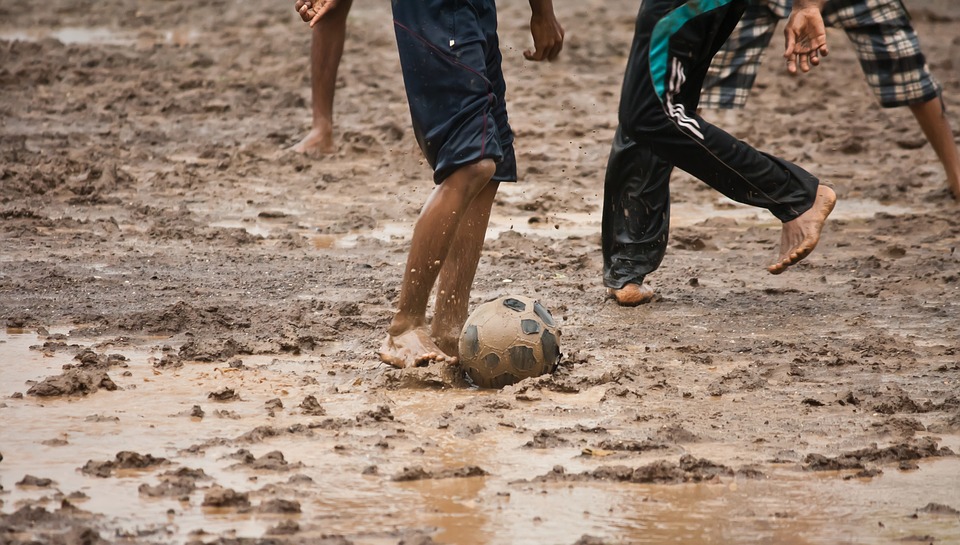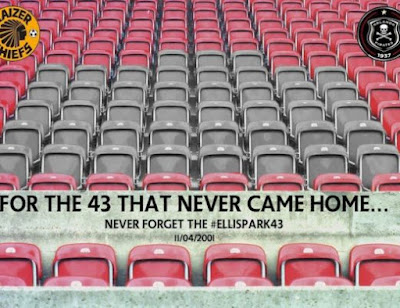The BIG Complaint – a lifeline for Jomo Cosmos? A view from the cheap seats
By Farai Razano
Introduction
Last week there were reports and
discussions in the mainstream media and on social media that Jomo Cosmos FC (“Jomo
Cosmos”) had filed a complaint against Hungry Lions FC (“Hungry Lions”) for the
fielding of an ineligible player in the National Soccer League (“NSL”) Glad-Africa
Championship. Some have claimed that the complaint is somewhat a lifeline for
Jomo Cosmos to bounce back into the Glad-Africa Championship. Is that so? What
do the NSL rules say about complaints? In this article I consider the procedural
rules regulating complaints and provide my view (from the cheap seats) on the
complaint and the applicable rules.
 |
| Photo - istockphoto - 541980150 |
A Complaint, not a protest
It is important to emphasise, from the onset, that Jomo Cosmos have filed a complaint, not a protest because the procedures and results are not the same.
In terms of rule 52.2, “If a complaint relates to the registration of a Player, the complaint must be lodged no later than 40 (forty) days after the date of the closure of the registration period during which that registration was made, or within 40 (forty) days of the date of registration if such registration took place outside a registration period.” Rule 52.4 adds that “Notwithstanding the provisions of this Rule no complaint may be lodged more than 5 (five) days after the last league competition fixture of the applicable Division.”
Without being privy to all the facts, there are two issues that will have to be determined on the timing of the complaint. More than 40 days have passed since the relevant registration period closed at the end of August 2021. The player played for Hungry Lions from as early as 28 August 2022 against Pretoria Callies.
Is the complaint not out of time?
Jomo Cosmos’ complaint relates to the registration of a player. It is alleged that Hungry Lions registered the player without a clearance certificate that should have been issued by Jomo Cosmos. Therefore, the complaint is within the ambit of rule 52.2.
It is important to note that rule 52.2 does not talk about when the complainant gets knowledge of the alleged improper registration, but the date of registration. Therefore, the 40 days started running at the end of August 2021 and the complaint has been brought outside the prescribed 40 days.
It may be said that rule 52.4 may just have left the door open for Jomo Cosmos. Therefore, a determination must be made whether the Relegation / Promotion Play-offs matches fall under “…league competition fixture of the applicable Division.” considering that Hungry Lions (and Cosmos) played their last Glad-Africa Championship matches on 15 May 2022. On a purposive interpretation, the Relegation / Promotion play-offs match between University of Pretoria FC and Swallows FC on 15 June 2022 may fall under “last league fixture of the applicable Division.” However, it may be argued that the operative rule on the time limits is rule 52.2 and rule 52.4 must be read together with rule 52.2 and rule 52.4 is only triggered if the 40 day period in rule 52.2 has not expired.
The possible sanctions if Hungry Lions is found guilty
The issue of whether Hungry Lions is guilty or not is mainly a factual issue that would have to be determined by the Disciplinary Committee (“the DC”). However, media reports suggest that Hungry Lions got the player on loan from Kaizer Chiefs FC, Hungry Lions may argue that they acted on the strength of the information provided by Kaizer Chiefs FC and the player, and they may actually be a victim here. But let us not speculate. All the facts will be laid bare before the DC. We have to wait and see.
For the sake of the next issue that I consider below, I proceed on the assumption that Hungry Lions will be found guilty, and the DC must decide on the appropriate sanction. This is where the issue of protest vs complaint (or a prosecution by the League, not by a club by way of a complaint) becomes very important.
The wide discretion of the Disciplinary Committee on sanction
Where a prosecution proceeds on the basis of a protest or is done by the League itself, the DC has a wide discretion on the sanction. Many will remember the famous Epstein SC and Cassim SC awards that were taken on review at the end of last season. The Court found that there was no mandatory sanction for fieldingan ineligible player, the DC had discretion on this issue and the Court upheld both the Epstein SC and Cassim SC awards. This was despite the fact that Epstein SC had ordered a forfeiture of the match and Cassim SC did not when both matters involved the fielding of an ineligible player.
If Jomo Cosmos' case was a protest or was being prosecuted by the NSL, the DC would have a wide range of sanctions to choose from. These are set out in rule 57.13 and include forfeiture of a match, docking of points, monetary fine, warning or reprimand among others.
But this is a complaint
With complaints it is slightly different. Rule 52.2 has an inbuilt sanctions clause in the form of rule 52.10.4. It is important to reproduce the whole sub rule here. It reads:
52.10.4. in the event of a finding of guilt the
Disciplinary Committee may only impose one or more of the following
sanctions:–
52.10.4.1. The imposition of a monetary Fine not
exceeding R500,000.00 (five hundred thousand rand);
52.10.4.2. The censure of the offending party
concerned;
52.10.4.3. The closure of a ground for a specified
stated period;
52.10.4.4. Ordering the offending party to pay all
expenses of and incidental to the consideration of the complaint matter;
52.10.4.5. The suspension of a Player, Member Club Official or Member Club from all or any specific football activity for a specified period of time or a number of matches.
In my view, if Hungry Lions are found guilty, the DC is limited to the sanctions in rule 52.10.4 which clearly states that the DC “may only impose one or more of the following sanctions…” The DC cannot go on a shopping spree in rule 57.13 (or the rest of the rules) for a sanction that the DC (or the complainant) is of the view is harsher or more appropriate.
There is history to sub rules 52.2, 52.4 and 52.10.4. I cannot quite recall the year of the amendment to rule 52. However, prior to the amendment of rule 52 and the introduction of these sub rules, there was no time limit on when a complaint should be lodged and the specific applicable sanctions. That resulted in clubs sitting on information and only lodging complaints at the end of the season (mainly after relegation) to give themselves a new lease of life. It looks like the more things change, the more they remain the same.
Concluding remarks
It will be interesting to see how the DC interprets rules 52.2 and 52.4 and whether Jomo Cosmos’ complaint is not out of time. More importantly, it will be interesting to see how the DC interprets rule 52.10.4 and whether the sanction that the DC imposes (if Hungry Lions are found guilty) will condemn Hungry Lions to relegation and bring Jomo Cosmos back into the Glad Africa Championship.


Comments
Post a Comment